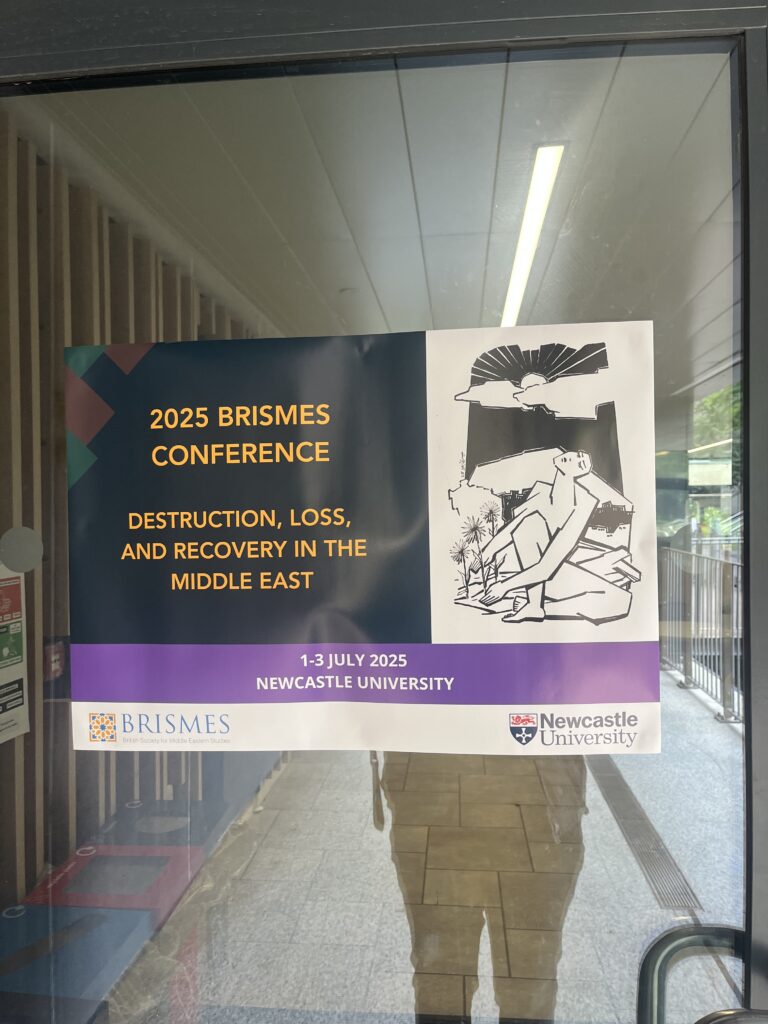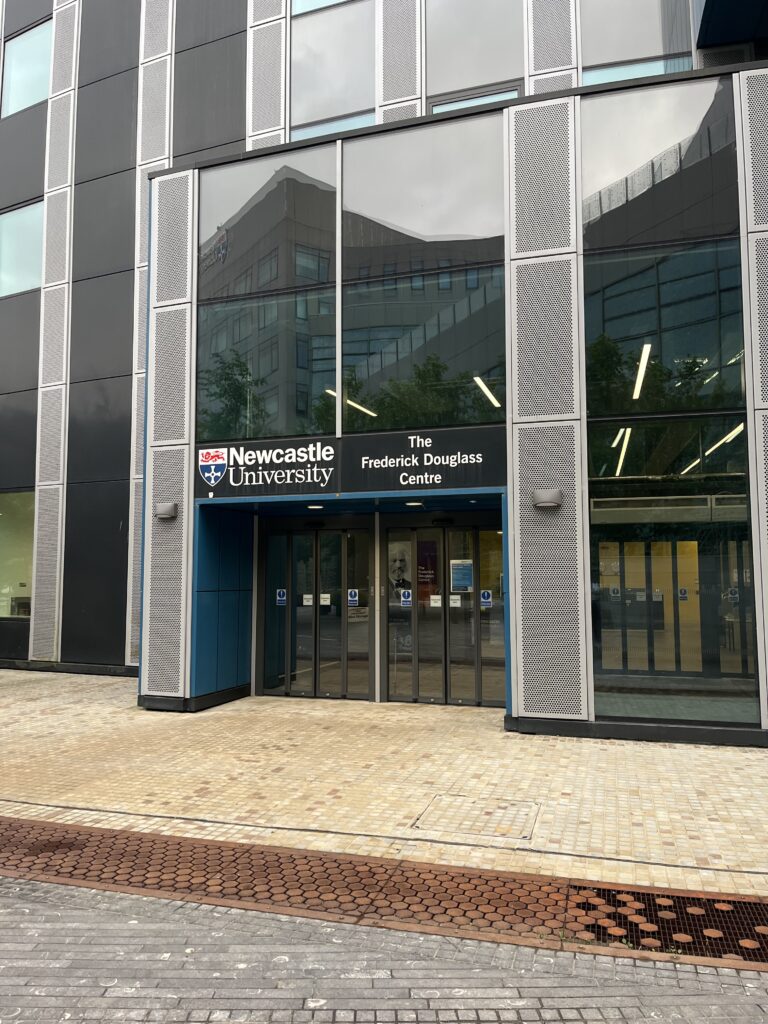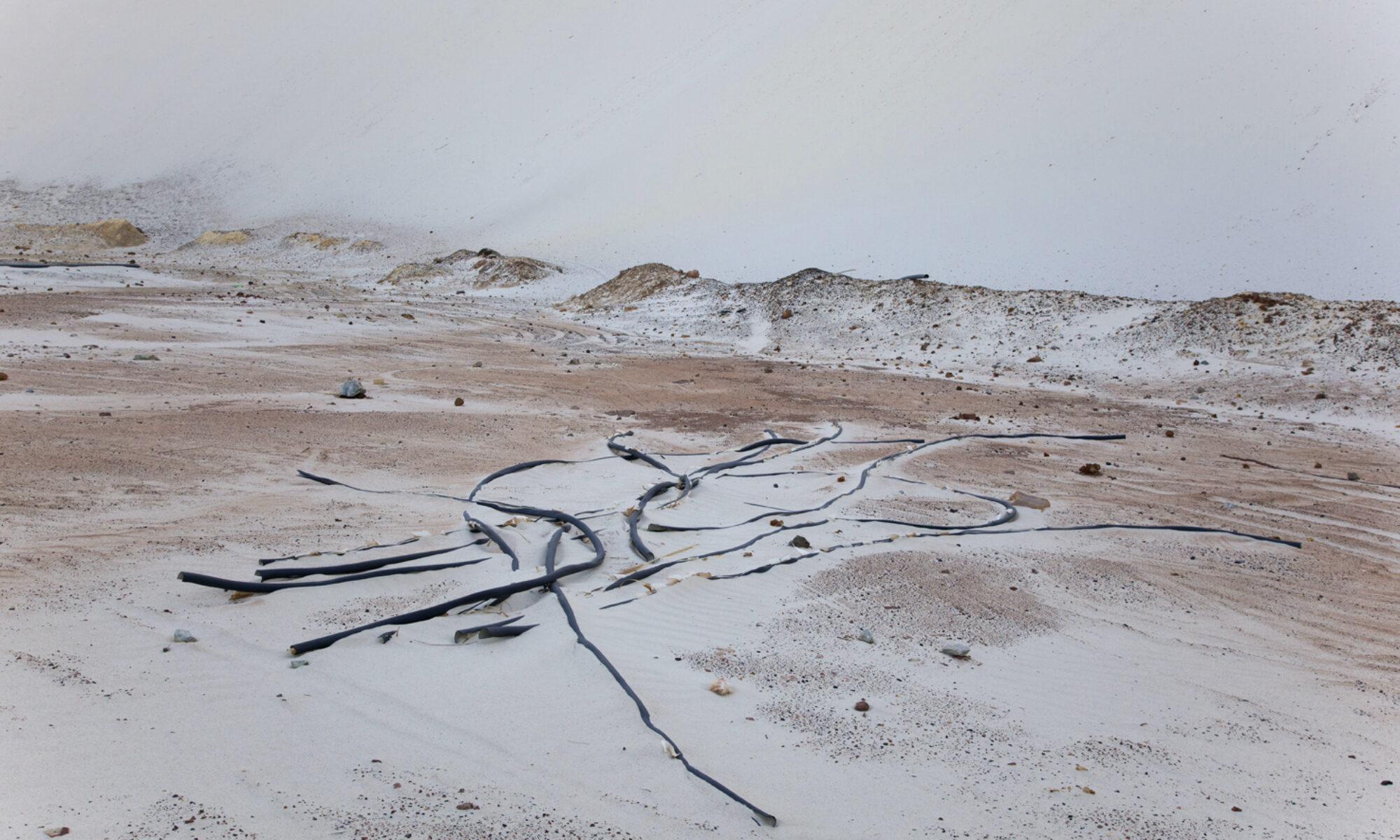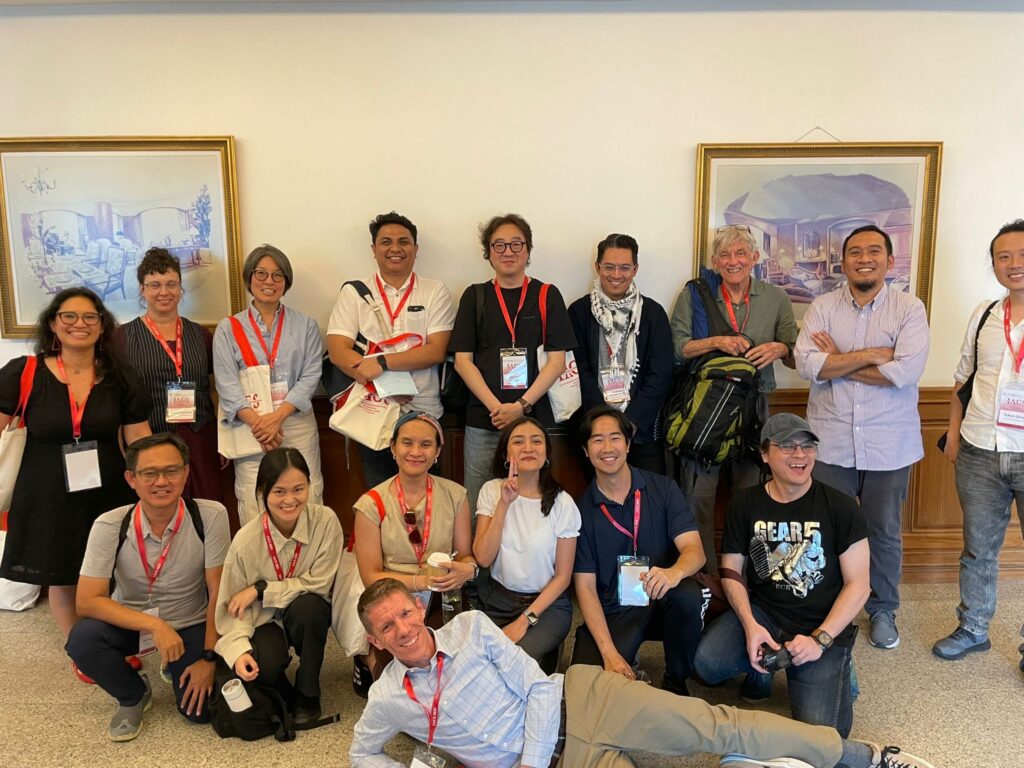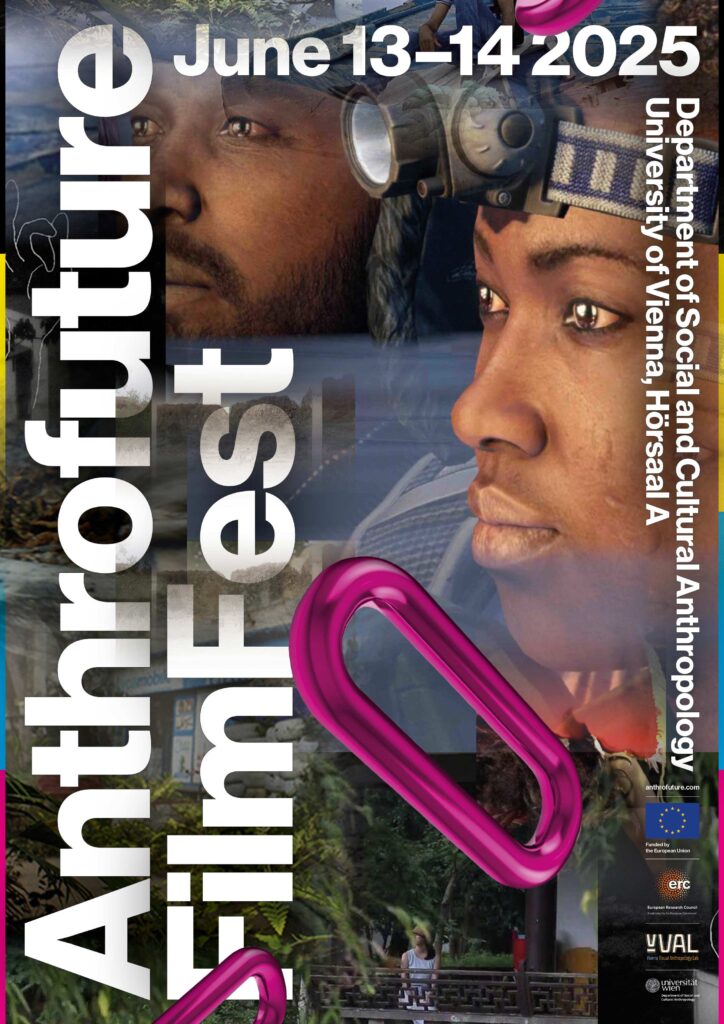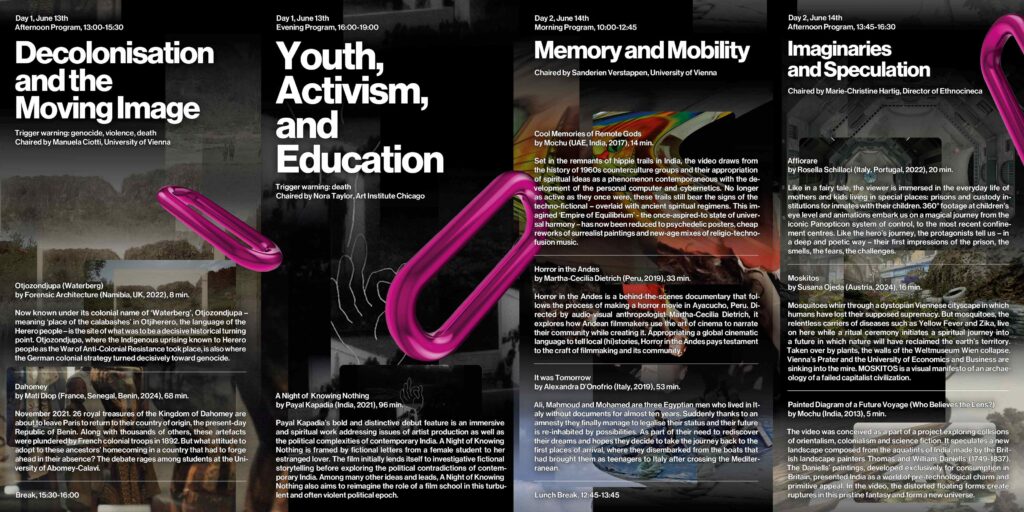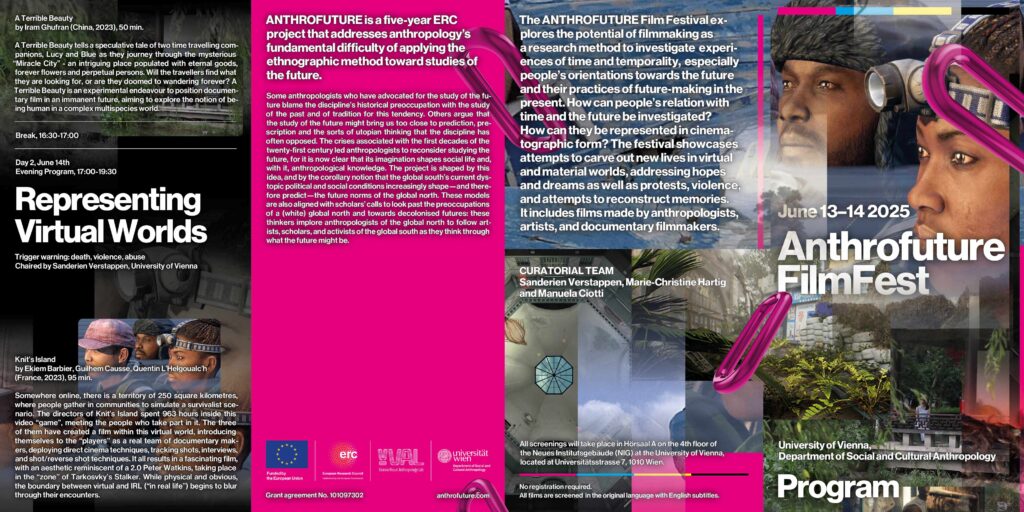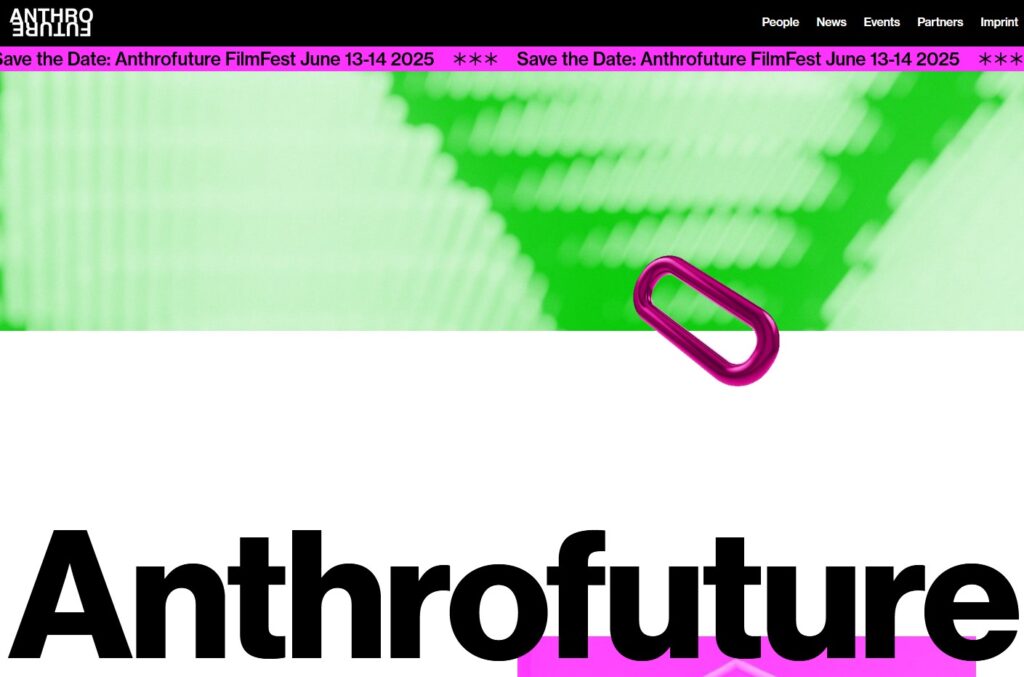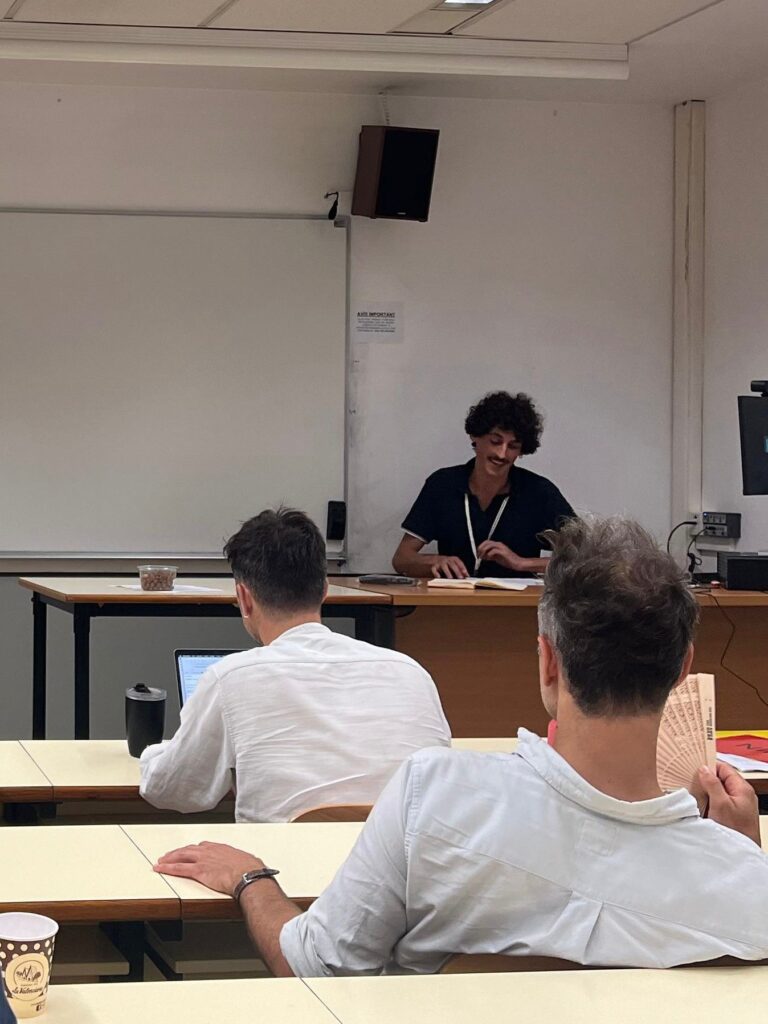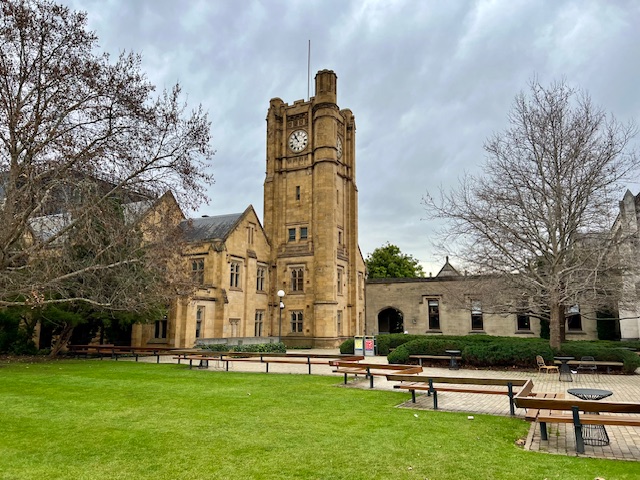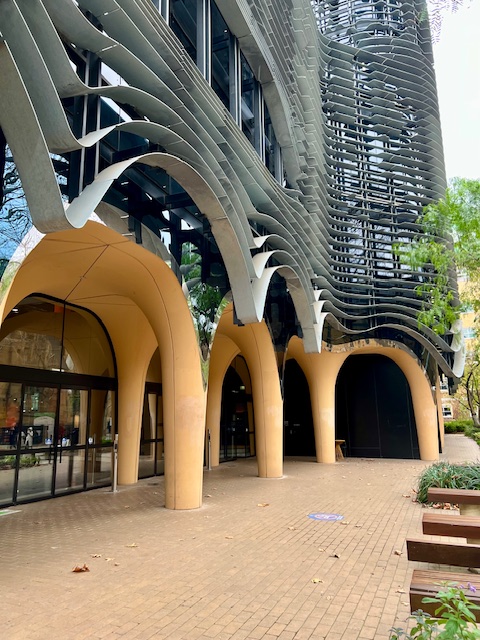Evgenija Filova had the pleasure of taking part in the 2025 British Society for Middle Eastern Studies (BRISMES) Annual Conference “Destruction, Loss, and Recovery in the Middle East” where she had the opportunity to present her doctoral research. The conference took place this year at Newcastle University at the School of Geography, Politics, and Sociology.
Earlier this year Evgenija Filova also had the opportunity of presenting her research at the 2025 Association of Social Anthropologists of the UK Annual Conference “Critical Junctions: Anthropology on the Move”. The conference took place at the Department of African Studies and Anthropology at the University of Birmingham where Evgenija Presented her paper as part of the panel “Catastrophic thinking, and thinking about catastrophe: constructing an anthropology of the ‘end-times’ for the colonised and displaced”.
